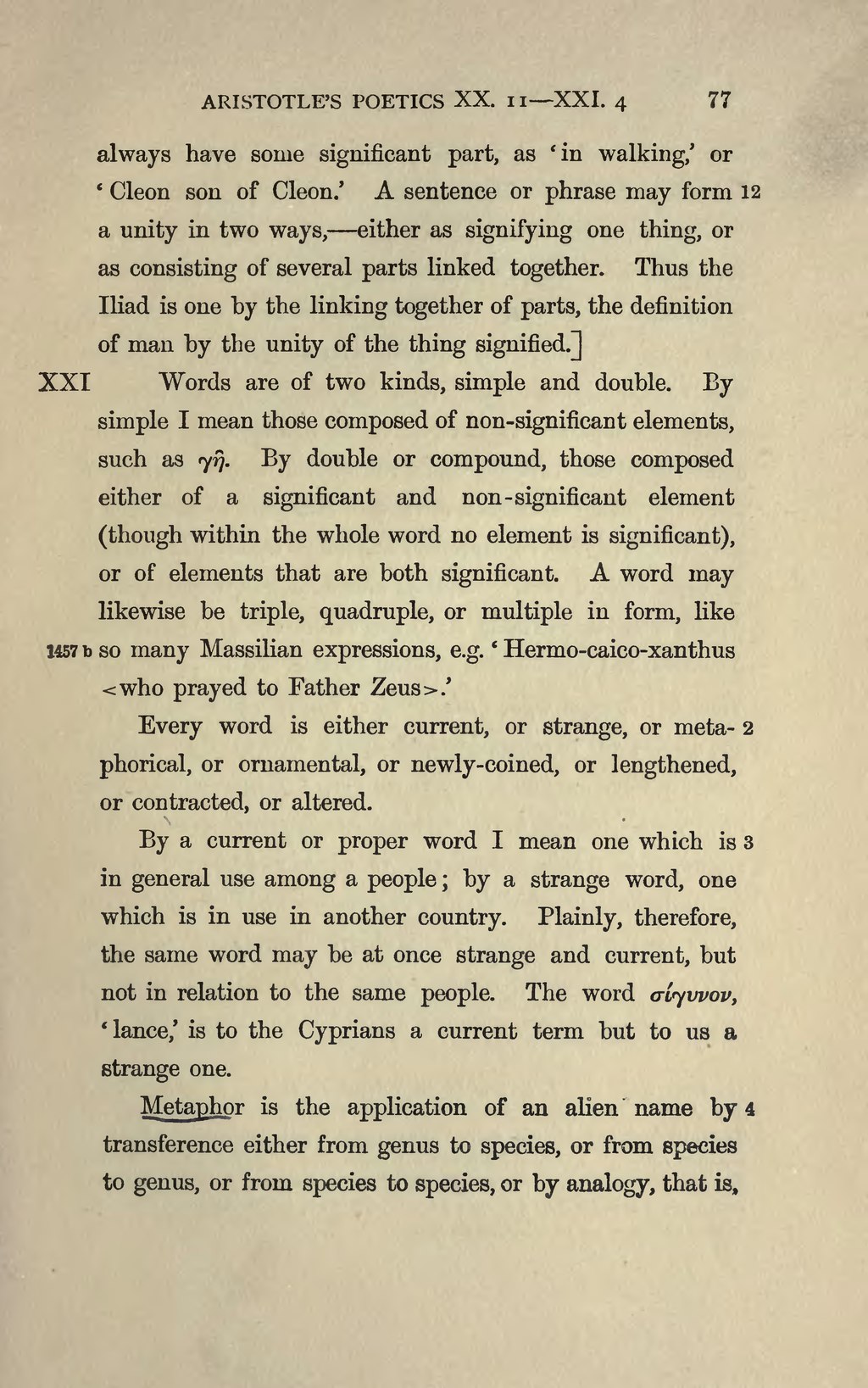always have some significant part, as 'in walking,' or 'Cleon son of Cleon.' A sentence or phrase may form a unity in two ways—either as signifying one thing, or as consisting of several parts linked together. Thus the Iliad is one by the linking together of parts, the definition of man by the unity of the thing signified.]
XXI
Words are of two kinds, simple and double. By simple I mean those composed of nonsignificant elements, such as γῆ (ge), 'earth.' By double or compound, those composed either of a significant and nonsignificant element (though within the whole word no element is significant), or of elements that are both significant. A word may likewise be triple, quadruple, or multiple in form, like so many Massilian expressions, e.g., 'Hermo-caico-xanthus <who prayed to Father Zeus>.'
Every word is either current, or strange, or metaphorical, or ornamental, or newly-coined, or lengthened, or contracted, or altered.
By a current or proper word I mean one which is in general use among a people; by a strange word, one which is in use in another country. Plainly, therefore, the same word may be at once strange and current, but not in relation to the same people. The word σίγυνον (sigynon), 'lance,' is to the Cyprians a current term but to us a strange one.
Metaphor is the application of an alien name by transference either from genus to species, or from species to genus, or from species to species, or by analogy, that is,
